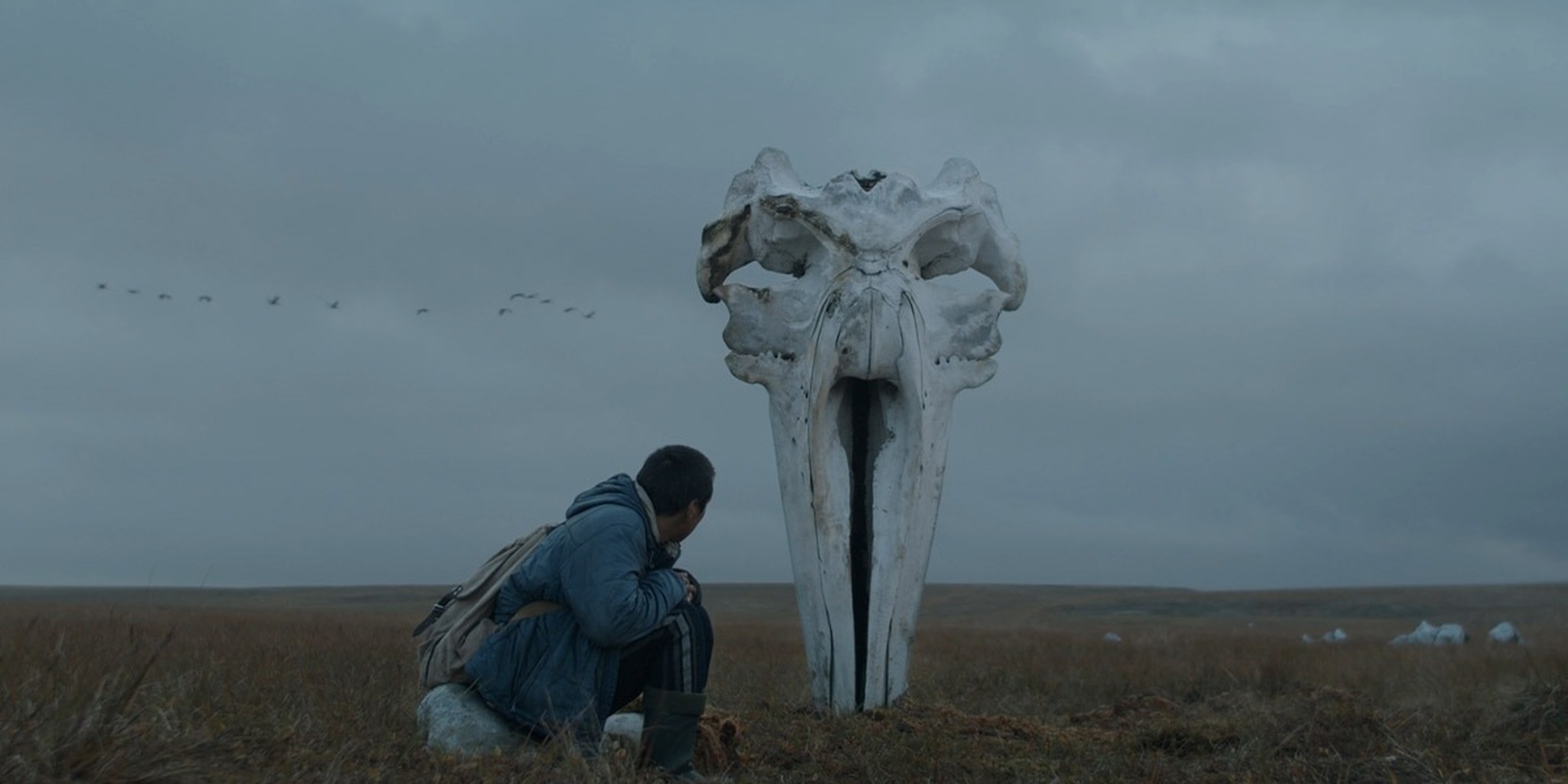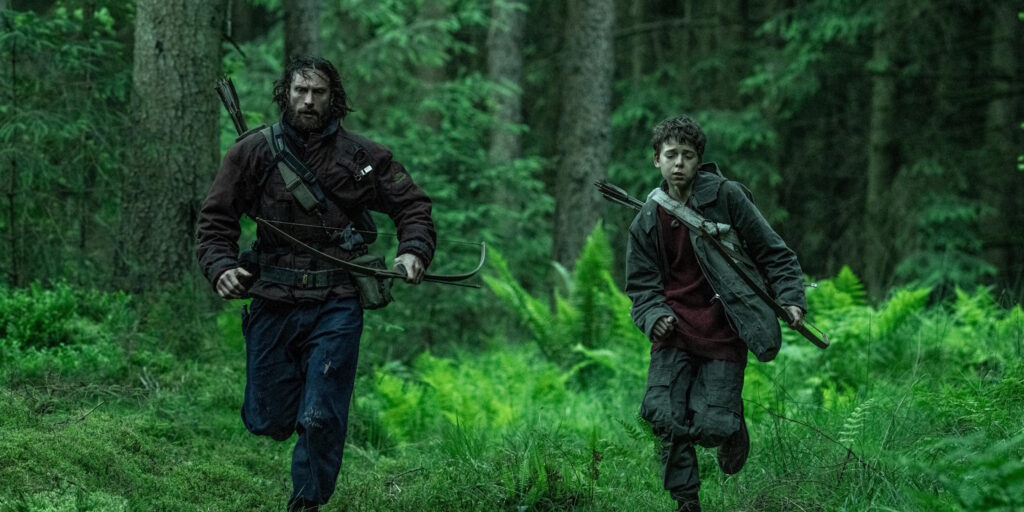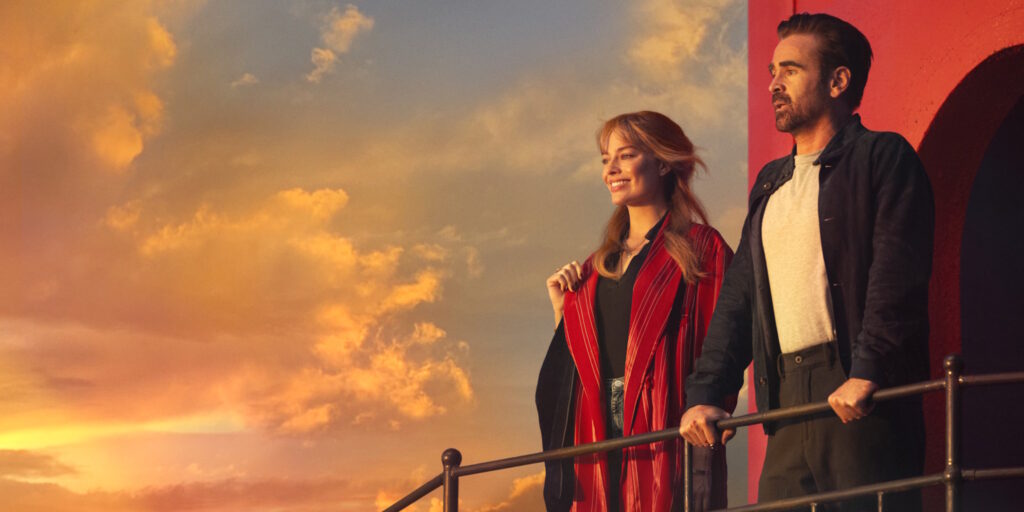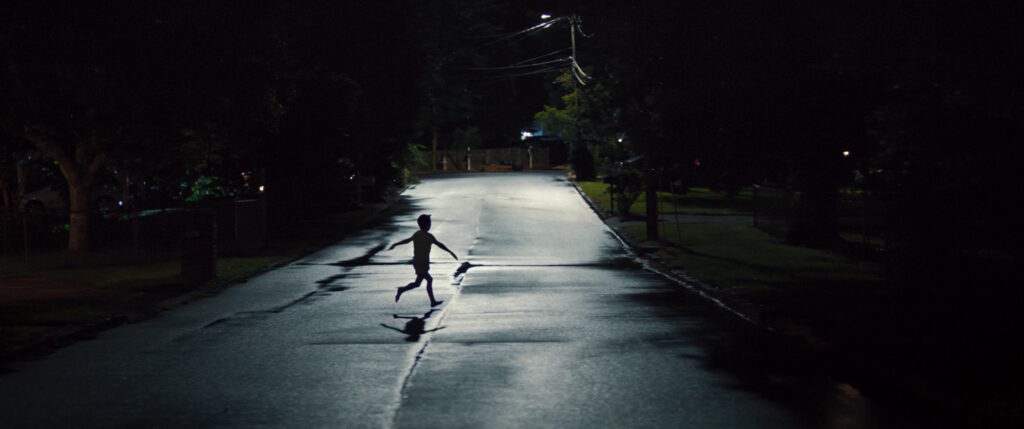[Originally published at Cinema St. Louis’ The Lens.]
Writer-director Philipp Yuryev’s bleak, slippery coming-of-age tale, The Whaler Boy, opens with an arresting fake-out. Somewhere in a large American city, a young camgirl (Kristina Asmus) arrives at her place of work – an anonymous building accessed via a neon-lit alleyway straight out of a Paul Schrader feature – and makes ready to extract a steady trickle of online transactions. Yuryev regards this sex worker with an almost anthropological curiosity, quietly observing as she changes clothes, applies makeup, positions webcams, and dons a suitably coquettish demeanor for her viewers. The film’s credits only identify her as “Girl from America,” but The Whaler Boy is not truly about her. It’s about the adolescent boy who is sitting in front of an outdated laptop over 3,000 miles away, hanging on her every suggestive gesture. To our protagonist, Leshka (Vladimir Onokhov), she is HollySweet_999, and she’s about to upend his young life.
Leshka is 15 years old and lives at the edge of the world: Chukotka, last bastion of the Russian Federation at the country’s far northeastern limit. Despite his Russian name, Leshka is of the Chukchi people, and his flyspeck coastal village makes the regional capital of Anadyr (pop. 13,000) look like a glittering metropolis by comparison. Leshka lives with his blind grandfather (Nikolay Tatato), who cheerily predicts his own death with such regularity that the boy now barely acknowledges these morbid pronouncements. It is summer near the Arctic Circle and Leshka is semi-idle. When he’s not assisting with the village’s traditional whale hunts or delivering portions of meat to the elderly locals, he spends his days loitering with his best friend, Kolyan (Vladimir Lyubimtsev).
The pair are restless and dimwitted in the fashion of many teenage boys. They mostly talk about girls, especially the ones they watch on their computers. Kolyan arranges a double date with a couple of flesh-and-blood teenage girls an hour away, but his decrepit motorcycle breaks down en route, obliging the crestfallen boys to trudge back home through the nocturnal tundra. It would be depressing if it didn’t feel so typical and emblematic of Leshka’s stuck circumstances. Perhaps it’s for the best, as the boy is far more interested in HollySweet_999, with whom he has developed a sexual and romantic obsession. (When Kolyan’s uncle brings a blond-bobbed prostitute to the village, Leshka awkwardly demurs, out of loyalty to his favorite camgirl.) He doesn’t tip Holly – Who has the rubles for that? – but watches raptly as she lounges around provocatively, blowing kisses and fidgeting with her lingerie. With some assistance from a children’s Russian-English audiobook, he talks out loud to her grainy digital visage, complimenting her beauty and proposing marriage. Does he know she can’t hear him? Does it matter?
Yuryev is not himself Indigenous, but his debut feature conveys a potent sense of place, echoing Julia Phillips’ stunning Kamchatka-set 2019 novel The Disappearing Earth. However, the extreme remoteness of Chukotka means that it is defined as much by its proximity to the United States as by its Indigenous or Russian qualities. At one point, a funeral is held in Leshka’s village for a Chukchi man who attempted to cross the Bering Strait to Alaska in a fishing boat, only to be shot by U.S. Border Patrol agents who deemed his whale harpoon a deadly weapon. Leshka seems to derive all the wrong lessons from this tragedy, and his adolescent brain begins whirring with half-formed plans. (HollySweet_999 lives in Detroit, not Alaska, but America is just an undifferentiated, McDonald’s-dotted promised land in poor Leshka’s mind.) Struggles with unreliable electricity, language barriers, and jealousy over “his” girl’s private chats send Leshka spiraling into rage and despair. What exactly, he asks himself, is keeping him in Chukotka?
The Whaler Boy is a tonally complex work, a troubling character study that incorporates elements of drama, comedy, fantasy, documentary, and even Lynchian horror. (If viewers miss the Twin Peaks and Lost Highway allusions, the Julee Cruise needle drops will certainly clarify where Yuryev’s influences lie.) The filmmaker handles it deftly, however, successfully painting Leshka as a sympathetic figure without undercutting his more miserable and volatile qualities. The film’s odd blend of the sinister and the whimsical recalls David Zellner’s masterful Kumiko, the Treasure Hunter (2014), another film about a quixotic seeker with a delusional fixation. There’s something perversely fascinating and a little disturbing about the one-sided relationship that Leshka has built around the commodified video image of a woman he’s never met. In a way, the boy’s status – physically and culturally isolated yet seduced by the promises of an interconnected world – mark him as a perfectly median representative of humankind in the 21st century. He is as distant from an uncontacted hunter-gatherer in the forest primeval as he is from a finance executive in a Wall Street skyscraper.
The film’s intense, ominous psychological portraiture can feel oppressive, much as Leshka’s dismal environs and prospects often seem suffocating to the boy. However, the director expands his feature’s aims and themes somewhat in the third act, as his protagonist attempts a desperate escape. What might have been a tunnel-vision descent into physical peril and personal ruin becomes something more mystical, with Leshka encountering, among other disorienting curiosities, visions of masked poacher-shamans and a meadow strewn with whale skeletons. A different film might have crushed the boy’s horny, starry-eyed illusions quite violently, but The Whaler Boy takes a more restorative approach, guiding him back into the bosom of his village and his people with the aid of some magical realism. The banality of Yuryev’s thesis – one can only recognize the worth of one’s home by leaving it – is mitigated by his film’s windswept beauty and its unsentimental but affectionate depiction of an overlooked part of the world.
The Whaler Boy will be available to rent on major online platforms on Friday, Jan. 14.




